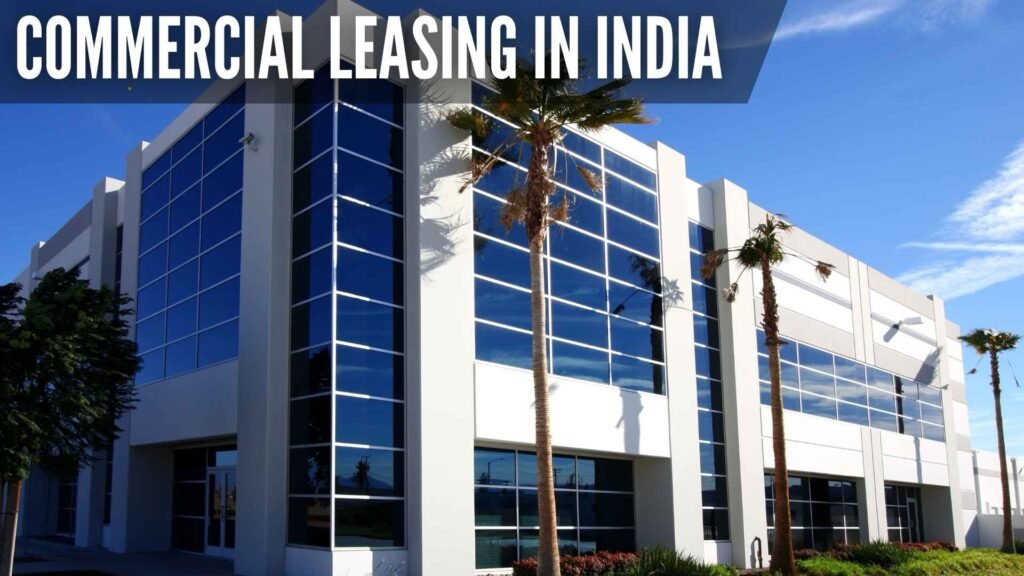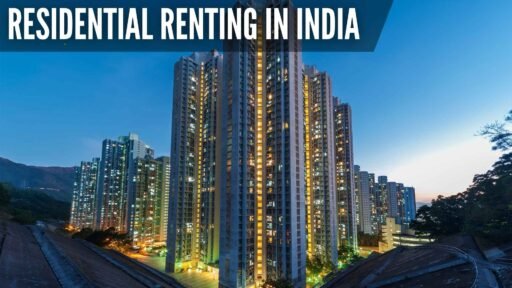
When it comes to securing a business space in India, understanding the ins and outs of commercial leasing is crucial. Whether you’re a startup founder, an expanding business, or an established enterprise looking to relocate, commercial leases can be a complex maze. But don’t worry, we’ve got you covered!
In this comprehensive guide, we’ll walk you through the essential aspects of commercial leasing in India, helping you navigate legalities, make informed decisions, and secure a space that aligns with your business goals. Ready to dive in? Let’s explore everything you need to know about commercial leasing in India.
What is Commercial Leasing?
Before we dive deeper into the specifics, let’s start with the basics. Commercial leasing refers to renting or leasing a commercial property (like office spaces, retail outlets, or warehouses) for business purposes. These leases typically last anywhere from 3 to 9 years but can vary depending on the terms agreed upon between the landlord and tenant.
A commercial lease agreement outlines key details such as rent, duration, property use, maintenance responsibilities, and renewal clauses. In India, the process can differ based on location, type of business, and the market conditions in your city.
Types of Commercial Leases in India
India offers a variety of commercial leasing options, each suited to different types of businesses. Here’s a breakdown of the most common types:
1. Fixed-Rate Lease
In this lease, the rent remains constant for the entire duration of the lease agreement, making it easy for businesses to plan their expenses.
2. Escalating Lease
In this model, the rent increases periodically, usually after every 3 to 5 years. This helps property owners adjust for inflation and rising market costs, while providing tenants with a predictable increase.
3. Market Rent Lease
This lease is tied to the prevailing market rate and typically requires periodic adjustments based on the real estate market trends in your area.
4. Percentage Lease
A popular choice for retail businesses, in this type of lease, the rent is based on a percentage of the tenant’s sales, allowing businesses with fluctuating income to pay based on their performance.
Key Factors to Consider Before Signing a Lease
Leasing commercial property involves much more than just agreeing on rent. Here are the key factors to keep in mind when entering into a commercial lease agreement in India:
1. Location, Location, Location
The location of your commercial space is one of the most crucial factors affecting your business success. Consider foot traffic, proximity to suppliers or customers, accessibility, and the area’s overall economic environment.
• Tip: If you’re a retail business, high foot traffic can drive sales. If you’re an office-based company, accessibility via major roads and public transport might be your priority.
2. Lease Term and Flexibility
The lease term refers to how long you agree to rent the space. In India, the duration of a lease typically ranges from 3 to 9 years, but shorter terms may be possible. Ensure the term aligns with your business’s growth plans.
• Consider a break clause: This allows you to exit the lease early if necessary, which is especially useful for businesses in their growth phase or those uncertain about future expansion.
3. Rent and Payment Terms
The rent should not only align with your budget but should also be competitive compared to similar properties in the area. Additionally, make sure to discuss the following payment terms:
• Security Deposit: Typically 6 months to 1 year’s rent, this can be negotiated.
• Advance Rent: Some landlords require advance payments—make sure this aligns with your cash flow.
• Maintenance Charges: Clarify whether the rent includes maintenance or if additional costs apply.
4. Additional Costs
Don’t forget about hidden costs. These can include property maintenance fees, parking charges, insurance, property taxes, and utilities. Always get a complete breakdown to avoid unpleasant surprises.
5. Legal Considerations
The legal aspects of commercial leasing in India can be complex. A well-drafted lease agreement protects both parties and minimizes future disputes. Make sure your lease includes:
• Tenant and landlord rights
• Possession and usage terms
• Dispute resolution clauses
• Rent escalation clauses
Hiring a real estate lawyer or consultant to review the agreement is a smart move.
The Commercial Lease Agreement: Key Components
A commercial lease agreement should be thorough and detailed. Here’s a quick checklist of what it typically includes:
• Parties Involved: The names and addresses of both the landlord and tenant.
• Lease Term: Duration and any renewal or extension options.
• Rent: Amount, payment schedule, and escalation clauses.
• Security Deposit: Details on the deposit amount and refund terms.
• Maintenance: Responsibility for maintaining common areas, structural repairs, and utilities.
• Subletting and Assignment: Whether subletting or assigning the lease is allowed.
• Termination Clause: Terms for early termination, including penalties or conditions.
Common Challenges in Commercial Leasing
While commercial leasing in India can be a smooth process if done right, there are several challenges that businesses face:
• High Rental Costs: In prime locations, rent can be prohibitively high, especially in major metros like Mumbai, Delhi, and Bengaluru. Consider your budget and look for cost-effective alternatives.
• Property Maintenance: Some landlords may not maintain the property adequately, which could affect your business operations. Ensure the lease clearly specifies maintenance responsibilities.
• Complex Legalities: The legal framework surrounding commercial leases can be confusing. Always have a legal expert by your side to avoid potential pitfalls.
Making the Right Choice for Your Business
Navigating the world of commercial leasing in India may seem intimidating, but with the right knowledge and preparation, you can find the perfect space for your business. Remember, the right lease can set your business up for success, while the wrong one can lead to long-term headaches.
Before signing anything, take time to consider your location, budget, lease terms, and long-term goals. Get everything in writing, and don’t hesitate to seek legal or professional advice if needed.
Leasing commercial space is a big decision, but with a clear understanding of the process and key considerations, you’ll be well-equipped to make the best choice for your business’s future. Ready to find the right space for your business? Start with the steps outlined in this guide and take your next step confidently!



